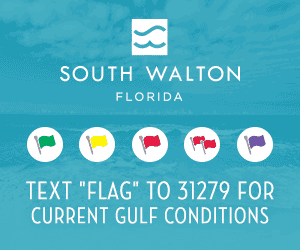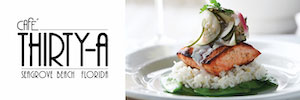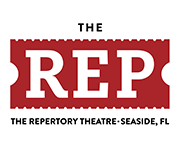Most OK with birth control at school, poll finds
67 percent support handing out contraceptives, but qualms remain
Nov. 1, 2007
WASHINGTON - People decisively favor letting their public schools provide birth control to students, but they also voice misgivings that divide them along generational, income and racial lines, a poll showed.
Sixty-seven percent support giving contraceptives to students, according to an Associated Press-Ipsos poll. About as many ? 62 percent ? said they believe providing birth control reduces the number of teenage pregnancies.
"Kids are kids," said Danielle Kessenger, 39, a mother of three young children from Jacksonville, Fla., who supports providing contraceptives to those who request them. "I was a teenager once and parents don't know everything, though we think we do."
Yet most who support schools distributing contraceptives prefer that they go to children whose parents have consented. People are also closely divided over whether sex education and birth control are more effective than stressing morality and abstinence, and whether giving contraceptives to teenagers encourages them to have sexual intercourse.
"It's not the school's place to be parents," said Robert Shaw, 53, a telecommunications company manager from Duncanville, Texas. "For a school to provide birth control, it's almost like the school saying, 'You should go out and have sex.'"
Those surveyed were not asked to distinguish between giving contraceptives to boys or girls.
The survey was conducted in late October after a school board in Portland, Maine, voted to let a middle school health center provide students with full contraceptive services. The school's students are sixth- through eighth-graders, when most children are 11 to 13 years old, and do not have to tell their parents about services they receive.
Opt-out policy considered
Portland school officials plan to consider a proposal soon that would let parents forbid their children from receiving prescription contraceptives like birth control pills.
Teenage pregnancy rates have declined to about 75 per 1,000, down from a 1990 peak of 117, according to the Guttmacher Institute, a research center. Still, nearly half of teens aged 15 to 19 report having had sex at least once, and almost 750,000 of them a year become pregnant.
The 67 percent in the AP poll who favor providing birth control to students include 37 percent who would limit it to those whose parents have consented, and 30 percent to all who ask.
Minorities, older and lower-earning people were likeliest to prefer requiring parental consent, while those favoring no restriction tended to be younger and from cities or suburbs. People who wanted schools to provide no birth control at all were likelier to be white and higher-income earners.
"Parents should be in on it," said Jennifer Johnson, 29, of Excel, Ala., a homemaker and mother of a school-age child. "Birth control is not saying you can have sex, it's protecting them if they decide to."
About 1,300 U.S. public schools with adolescent students ? less than 2 percent of the total ? have health centers staffed by a doctor or nurse practitioner who can write prescriptions, said spokeswoman Divya Mohan of the National Assembly of School-Based Health Care. About one in four of those provide condoms, other contraceptives, prescriptions or referrals, Mohan said.
Less than 1 percent of middle schools and nearly 5 percent of high schools make condoms available for students, said Nancy Brener, a health scientist with the federal Centers for Disease Control and Prevention.
Underlining the schisms over the issue, those saying sex education and birth control were better for reducing teen pregnancies outnumber people preferring morality and abstinence by a slim 51 percent to 46 percent.
Younger people were likelier to consider sex education and birth control the better way to limit teenage pregnancies, as were 64 percent of minorities and 47 percent of whites. Nearly seven in 10 white evangelicals opted for abstinence, along with about half of Catholics and Protestants.
Split on encouragement issue
In addition, 49 percent say providing teens with birth control would not encourage sexual intercourse and a virtually identical 46 percent said it would.
Though men and women have similar views about whether to provide contraceptives to students, women are likelier than men to think it will not encourage sexual intercourse, 55 percent to 43 percent.
Asked when young people should first be allowed to get birth control, ages 16 and 18 drew the most responses, while only a third chose age 15 or younger. Women's selections averaged just over age 16, slightly higher than men, while young people and Westerners preferred younger ages than others.
"I'd be pulling my kids out of that school," Ron Wrobel, 55, an engineer from Port Huron, Mich., said of the Maine middle school. He said birth control should be for teens at least 17 years old.
Mirroring the rift that has played out in countless battles in Congress, Democrats were likelier than Republicans to favor freer access to birth control and to have more faith that it reduces teenage pregnancies. Forty-five percent of Republicans _ including 51 percent of GOP women _ say birth control should not be provided to any students, compared to 19 percent of Democrats.
The poll involved telephone interviews with 1,004 adults from Oct. 23-25. It had a margin of sampling error of plus or minus 3.1 percentage points.
67 percent support handing out contraceptives, but qualms remain
Nov. 1, 2007
WASHINGTON - People decisively favor letting their public schools provide birth control to students, but they also voice misgivings that divide them along generational, income and racial lines, a poll showed.
Sixty-seven percent support giving contraceptives to students, according to an Associated Press-Ipsos poll. About as many ? 62 percent ? said they believe providing birth control reduces the number of teenage pregnancies.
"Kids are kids," said Danielle Kessenger, 39, a mother of three young children from Jacksonville, Fla., who supports providing contraceptives to those who request them. "I was a teenager once and parents don't know everything, though we think we do."
Yet most who support schools distributing contraceptives prefer that they go to children whose parents have consented. People are also closely divided over whether sex education and birth control are more effective than stressing morality and abstinence, and whether giving contraceptives to teenagers encourages them to have sexual intercourse.
"It's not the school's place to be parents," said Robert Shaw, 53, a telecommunications company manager from Duncanville, Texas. "For a school to provide birth control, it's almost like the school saying, 'You should go out and have sex.'"
Those surveyed were not asked to distinguish between giving contraceptives to boys or girls.
The survey was conducted in late October after a school board in Portland, Maine, voted to let a middle school health center provide students with full contraceptive services. The school's students are sixth- through eighth-graders, when most children are 11 to 13 years old, and do not have to tell their parents about services they receive.
Opt-out policy considered
Portland school officials plan to consider a proposal soon that would let parents forbid their children from receiving prescription contraceptives like birth control pills.
Teenage pregnancy rates have declined to about 75 per 1,000, down from a 1990 peak of 117, according to the Guttmacher Institute, a research center. Still, nearly half of teens aged 15 to 19 report having had sex at least once, and almost 750,000 of them a year become pregnant.
The 67 percent in the AP poll who favor providing birth control to students include 37 percent who would limit it to those whose parents have consented, and 30 percent to all who ask.
Minorities, older and lower-earning people were likeliest to prefer requiring parental consent, while those favoring no restriction tended to be younger and from cities or suburbs. People who wanted schools to provide no birth control at all were likelier to be white and higher-income earners.
"Parents should be in on it," said Jennifer Johnson, 29, of Excel, Ala., a homemaker and mother of a school-age child. "Birth control is not saying you can have sex, it's protecting them if they decide to."
About 1,300 U.S. public schools with adolescent students ? less than 2 percent of the total ? have health centers staffed by a doctor or nurse practitioner who can write prescriptions, said spokeswoman Divya Mohan of the National Assembly of School-Based Health Care. About one in four of those provide condoms, other contraceptives, prescriptions or referrals, Mohan said.
Less than 1 percent of middle schools and nearly 5 percent of high schools make condoms available for students, said Nancy Brener, a health scientist with the federal Centers for Disease Control and Prevention.
Underlining the schisms over the issue, those saying sex education and birth control were better for reducing teen pregnancies outnumber people preferring morality and abstinence by a slim 51 percent to 46 percent.
Younger people were likelier to consider sex education and birth control the better way to limit teenage pregnancies, as were 64 percent of minorities and 47 percent of whites. Nearly seven in 10 white evangelicals opted for abstinence, along with about half of Catholics and Protestants.
Split on encouragement issue
In addition, 49 percent say providing teens with birth control would not encourage sexual intercourse and a virtually identical 46 percent said it would.
Though men and women have similar views about whether to provide contraceptives to students, women are likelier than men to think it will not encourage sexual intercourse, 55 percent to 43 percent.
Asked when young people should first be allowed to get birth control, ages 16 and 18 drew the most responses, while only a third chose age 15 or younger. Women's selections averaged just over age 16, slightly higher than men, while young people and Westerners preferred younger ages than others.
"I'd be pulling my kids out of that school," Ron Wrobel, 55, an engineer from Port Huron, Mich., said of the Maine middle school. He said birth control should be for teens at least 17 years old.
Mirroring the rift that has played out in countless battles in Congress, Democrats were likelier than Republicans to favor freer access to birth control and to have more faith that it reduces teenage pregnancies. Forty-five percent of Republicans _ including 51 percent of GOP women _ say birth control should not be provided to any students, compared to 19 percent of Democrats.
The poll involved telephone interviews with 1,004 adults from Oct. 23-25. It had a margin of sampling error of plus or minus 3.1 percentage points.

 It might help save a child's childhood.
It might help save a child's childhood. IJS...one can always opt out.
IJS...one can always opt out.










